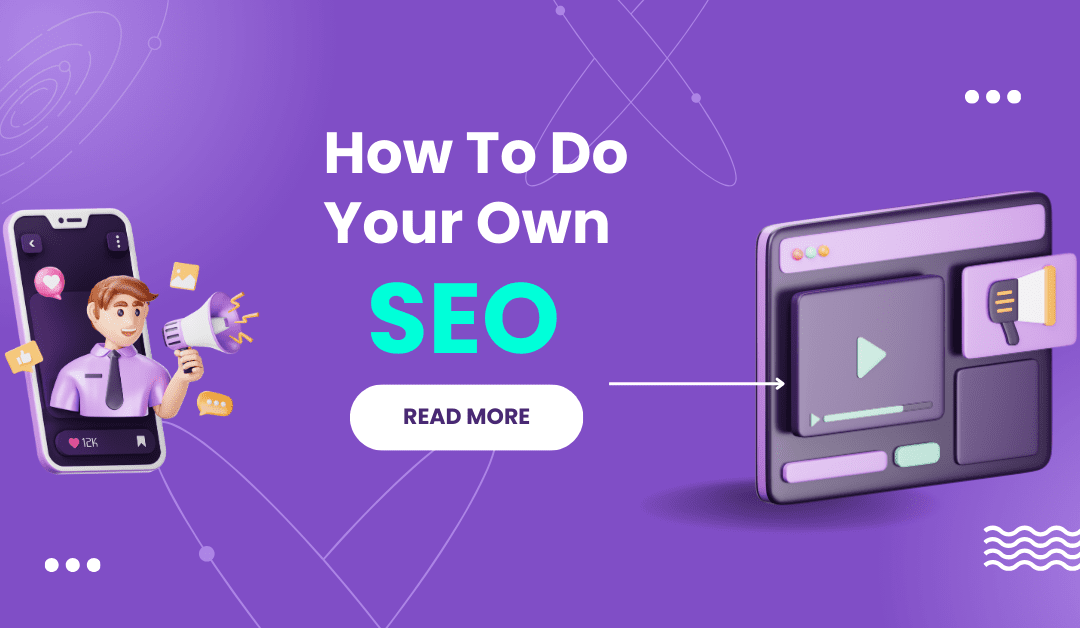Improving the search engine optimization (SEO) of a small business website is crucial for increasing online visibility and attracting relevant traffic. Many small businesses don’t understand that there are very specific keywords and keyword concentrations, headings, and meta tags, and backlinks that need to be used to meet your SEO goals. Here are some do-it-yourself (DIY) SEO tips for small businesses:
- Keyword Research:
- Use tools like Google Keyword Planner, Spyfu, or SEMrush to identify relevant keywords for your business.
- Target long-tail keywords that are specific to your products or services – for example if you are a landscaping business, instead of using a keyword “landscaper” which you will have an almost impossible time ranking for you should look at longer keywords like “landscapers who do decks” or ” outdoor patio landscapers.” By adding many of these long tail keywords and linking them to a specific page, it will be much easier to rank for popular keywords like “landscaper near me.”
- On-Page Optimization:
- Ensure that each page has a unique and descriptive title tag.
- Write compelling meta descriptions, tags and alt tags for each page – meta descriptions and alt tags are very hard to optimize, you really need to find the best digital marketing agency in your area to utilize these correctly because they vary drastically by industry and geographically.
- Use header tags (H1, H2, H3) to structure your content. H1headers should be general and get more specific as you go. For example, a typical spa headers should look like this: H1 – Boston Spas H2 – Facial Spas in Boston H3: Facials for Acne in Boston
- Optimize images with descriptive alt text. Alt text is a tag for each image.
- There are particular size images for what is called Google Discover. This size is 1200×628. Try to set your featured image at this size to be considered
- Quality Content:
- Create high-quality, valuable, and relevant content for your target audience. Do not use ai – speak from experience and give input that is valuable and not generic.
- Regularly update your content to keep it fresh and relevant. You should have a blog dedicated to new trends in your industry. For example, if you are marketing a restoration company – keeping up to date on weather patterns, localized storms and latest restoration cleaning techniques would be items to focus on.
- Use social media to share industry insights, tips, and news.
- Local SEO:
- Set up and optimize your Google My Business (GMB) profile – optimization of a google profile is one of the most important things you can do for your business and to get new leads as efficiently as possible. It is also something that requires a digital marketing agency in your area. Hiring a company from another state/country is not recommended for setting up google my business or google guaranteed.
- Ensure that your business name, address, and phone number (NAP) are consistent across online platforms. This is especially important for small businesses with one location
- Encourage customers to leave reviews on your GMB profile.
- Link Building:
- Build high-quality, relevant backlinks to your website. Focus on quality over quantity.These are called white hat links. You will need to do some press releases, and generate real content with high quality images to initiate this process
- Guest posting, partnerships, and influencer collaborations are potential strategies. Some of these opportunities are very high in cost and not feasible for small businesses.
- Mobile Optimization:
- Ensure your website is mobile-friendly. Google prioritizes mobile-responsive websites. Hiring a good web developer is crucial to making sure your mobile site vs. desktop site are both optimizes
- Test your site using Google’s Mobile-Friendly Test.
- Social Media:
- Maintain an active presence on social media platforms relevant to your business. Making sure you have targeted marketing with geofencing, a location-based strategy that delivers personalized content to users within a specific geographic area, maximizing engagement and driving results for businesses.
- Share your content, engage with your audience, and encourage social sharing. Read more about social media management.
- Site Speed:
- Optimize your website for fast loading times. Use tools like Google PageSpeed Insights to identify and fix issues.
- Compress images, enable browser caching, and consider a content delivery network (CDN).
- Technical SEO:
- Check for and fix broken links.
- Create and submit a sitemap to search engines – a sitemap is very important to get all of your pages listed on google. If you notice one of your pages isn’t being indexed, it’s likely that it isn’t on the site map.
- Ensure proper use of robots.txt file to control search engine crawling.
- Search Engine Marketing Analytics:
- Use tools like Google Analytics to track and analyze website traffic. Many new digital marketing companies end up wasting so much money on trials. PPC, Social Media Advertising and Google Adwords doesn’t have to cost thousands every month. It is important to find a digital marketing company in your area with expertise in all fields to ensure success. If you digital marketing agency says “we need to test keywords,” run in another direction. This usually means you will be wasting money on useless clicks
- Monitor key metrics, such as bounce rate, time on site, and conversion rates.
- Stay Informed:
- SEO is constantly evolving. Stay updated on industry trends and algorithm changes.
- Follow reputable SEO blogs, participate in forums, and attend webinars or conferences.
SEO setup takes a lot of time, research and constant updating. It is best to find an SEO company near you so you can focus on what you are good at! Related: Boston SEO
